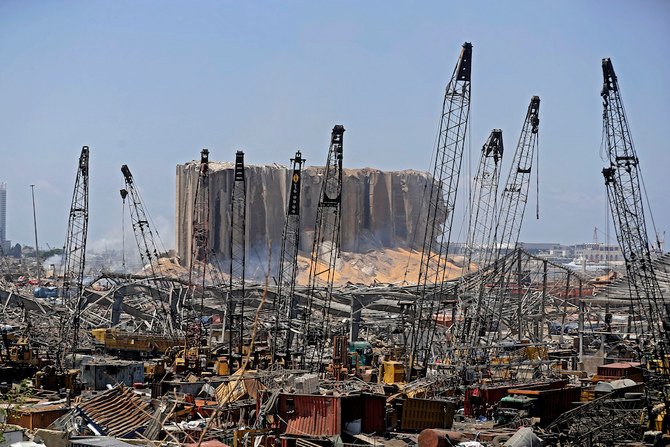There is a growing belief among Lebanese political analysts that the investigation into the Beirut blast of Aug. 4, 2020 will meet the same fate as the probe into the Feb. 14, 2005 explosion that killed Rafik Hariri, the former Lebanese prime minister, and 21 others.
Two explosions at the government-owned Port of Beirut claimed the lives of 218 people, injured more than 6,500 and left 300,000 homeless. The explosions resulted from a fire in a warehouse containing ammonium nitrate and caused damage worth an estimated $3 billion.
Meanwhile, 12 years after it was officially established, the Hariri investigation is in limbo. The sole individual indicted in absentia by the UN’s Special Tribunal for Lebanon (STL), a low-level Hezbollah operative called Salim Ayyash, has not been brought to justice.
Lebanese analysts warn the Beirut blast inquiry will also remain in limbo indefinitely unless international organizations and foreign powers put pressure on the government to allow a fully transparent investigation by an independent judicial system.
“The Beirut blast probe is not necessarily a domestic investigation with domestic implications and ramifications. It is also a global public opinion drive that will continue to evolve and involve international actors,” Christophe Abi-Nassif, Lebanon program director at the Middle East Institute, told Arab News. “Back in 2005, all it took was for the Hariri camp, the Future Movement and his son Saad Hariri to be satisfied with the arrangement.”
By contrast, the Beirut port explosion affected many families who have the power to demand the matter be fully investigated, Abi-Nassif said. “The families of the victims are at the heart of this investigation.”
On the first anniversary of the blast, Amnesty International, the international rights advocacy group, accused the Lebanese authorities of “shamelessly obstructing victims’ quest for truth and justice” in the months since the blast, actively shielding officials from scrutiny and hampering the course of the investigation.
In February, Fadi Sawan, the first judge appointed to lead the investigation, was dismissed after he summoned political figures for questioning. So far, the authorities have rejected requests by his replacement, Tarek Bitar, to lift the immunity granted to officials and to allow him question senior members of the security forces.
Leaked official documents indicate that Lebanese customs officials, military and security chiefs, and members of the judiciary warned successive governments about the danger posed by the stockpile of explosive chemicals at the port on at least 10 occasions during the six years it was stored at the port, yet no action was taken.
A wounded man sits on the ground waiting for aid at Beirut’s port after the explosion. (AFP/File Photo)
MPs and officials are clinging to their right to immunity, effectively shielding suspects whose actions are blamed for causing the explosion, and denying thousands of victims the justice they demand.
Survivors of the blast and a raft of advocacy groups have revived their push for an “international, independent and impartial investigative mission” into the cause of the blast.
“An international investigation would not impede, but rather assist the domestic process,” they said in a joint statement delivered to the UN Human Rights Council on Sept. 15.
Although government interference in the investigation has been detrimental to its progress, Abi-Nassif believes that taking the matter entirely out of Lebanese hands would only harm its legitimacy.

